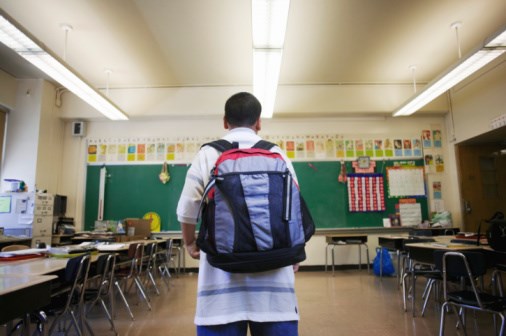As September draws near, parents are left feeling uneasy as to whether or not their children should return to school given the current and ongoing COVID-19 pandemic.
This has forced many parents to make a difficult decision, and one that has caused separated parents to come into disagreement.
What happens if one parent is completely opposed to the other – one parent wants their child back in school and the other doesn’t feel comfortable? Here are some factors your audience needs to consider before making any decisions:
- What determines a child’s “best interest” about returning to school in September? Physical health vs. mental health, education vs. safety, childcare vs. job security?
It is the parents’ decision whether their child returns to school in September. It is not obligatory. If co-parents can’t agree on this, the court will look at a multitude of factors, all of which are centered on the best interests of the child.
If the risks of the child returning to school outweigh the benefits, the child should remain in isolation. This will be determined on a case-by-case basis, depending on each family’s unique situation.
Many risks have been identified concerning the prolonged isolation of children. This decision must be made by balancing competing factors, including but not limited to, a lack of exercise, the child’s mental health, the quality of virtual education, peer socialization, the availability of other caregiving options, if the child has an underlying condition that increases the risk of severe illness from COVID-19, and whether there are any household members at increased risk for severe illness from COVID-19.
Parents must be practical and use common sense when making risk-related decisions. The benefit a child receives from interaction with their peers is profound, but the courts will consider the child’s safety as top priority.
- What happens if the argument is escalated to a court order?
- How long will it take to come to a decision?
- Will there be legal fees?
- Will my child be involved in the decision?
The courts are still rescheduling non-urgent family matters that were cancelled due to COVID-19. In order to meet the requirements for an urgent application, the concern must be immediate and serious enough that it significantly affects the health or safety of the child. There must be an imminent risk of irreparable harm. Further, the concern must be definite and material rather than speculative. The court will require clear and concise evidence that the other parent is not adhering to COVID-19 guidelines.

If you attend the BC Provincial Court as a self-representative, there are no legal fees per se. The BC Supreme Court does have minor fees associated with filing. Altering agreements or obtaining court orders can significantly affect your rights and interests. For that reason, it is highly advisable to seek legal counsel when doing so.
Your child’s interests will be the first and foremost consideration, but they will not be personally involved in the court process. This is a stressful time for all. Any additional stress factors should be minimized for the child. That being said, the court does have the ability to obtain the child’s view, as per section 37(2)(b) of the Family Law Act, should the court consider it necessary and appropriate given the circumstances.
- If one parent voluntarily decides to homeschool the child, does this affect custody allotment? For example, if Parent X gets the child from 9 a.m. to 5 p.m., five days a week for homeschooling, are they still entitled to time with the child on weekends because their “allocated time” was spent homeschooling?
Parent X will still be entitled to their parenting time as per their court order or parenting agreement. The authorities and legal commentary are in favor of an interpretation of the Child Support Advisory Guidelines that declines to discount school hours from parenting time. Should co-parents agree to homeschool their child as a COVID-19 precaution in balancing the aforementioned risk factors, these school hours will likely be treated as regular school hours for the purposes of parenting time. Basically, homeschooling is still school, despite the teacher-parent maintaining care and control of the child during those hours. The parent with the “right of access” during these schools hours is still the parent who would keep the child at home should the child become ill.
Should the teacher-parent start to incur cost and expense as a result of their homeschooling the child, it may be possible for the teacher-parent to seek increased child support. If co-parents are considering homeschooling, it would be helpful to execute an agreement, setting out what co-parents will do in these situations. Should a dispute arise, an agreement can save valuable time and financial resources.
Chantal Cattermole is a senior family lawyer who can help answer any questions about the unique challenges divorced or separated parents may face.



